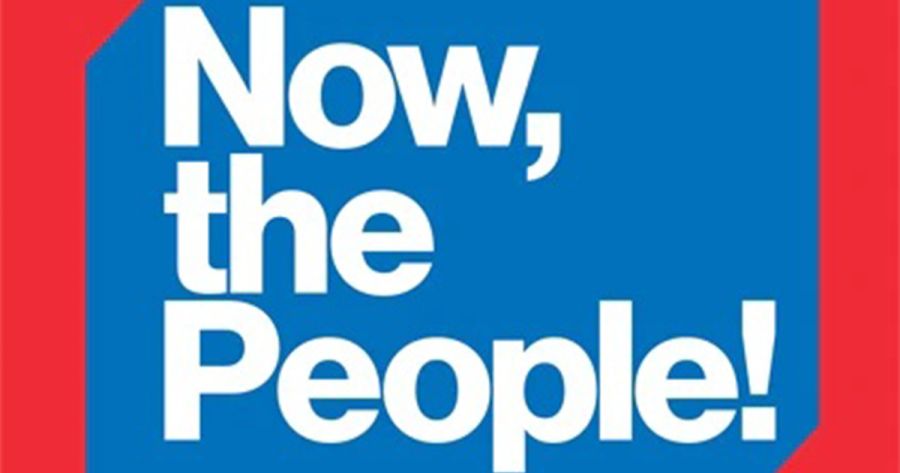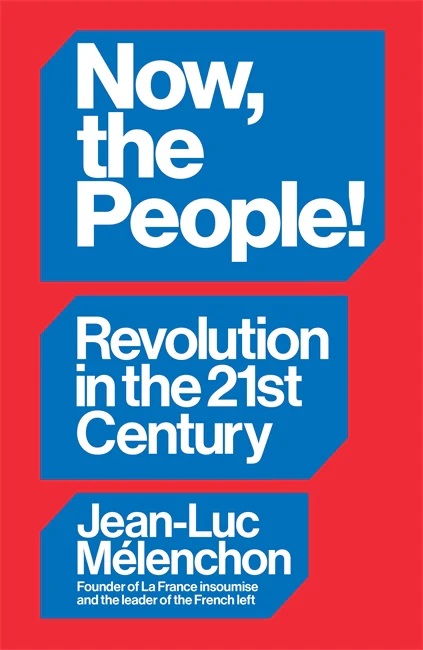
- Free Article: No
- Contents Category: History
- Review Article: Yes
- Article Title: Virtue is the glue
- Article Subtitle: France’s populist left leader
- Online Only: No
- Custom Highlight Text:
Jean-Luc Mélenchon is famous in France for his booming eloquence, his rich vocabulary, and his deep knowledge of history and politics. The firebrand orator was born in 1951 in Tangier, Morocco, to parents of Spanish and Sicilian descent, then moved to France with his mother in 1962. After a degree in philosophy and languages he was a schoolteacher before becoming a political organiser and elected politician, notably from inner-city Marseille.
- Book 1 Title: Now, the People!
- Book 1 Subtitle: Revolution in the twenty-first century
- Book 1 Biblio: Verso, £22.00, 320 pp
- Book 1 Cover Small (400 x 600):

- Book 1 Cover (800 x 1200):

- Book 1 Readings Link: https://www.readings.com.au/product/9781804297940/now-the-people-revolution-in-the-twenty-first-century--jean-luc-melenchon--2025--9781804297940#rac:jokjjzr6ly9m
Mélenchon has been the leader of La France Insoumise (LFI or ‘France in Revolt’) since it was established in 2016. He has run for President of France three times, in 2012, 2017, and 2022. In 2022, he came in third with twenty-two per cent of the vote, just one point short of qualifying instead of Marine Le Pen for the second round run-off against Emmanuel Macron.
This book is testimony to Mélenchon’s intellectual brilliance. His historical references range from medieval Europe and the French Revolution to Rachel Carson and Margaret Thatcher. He refers to the pollution of Lake Titicaca and to Tasmanian archaeology, to the impact of climate change on the Pacific islands and to the Arab Spring. His descriptions of the resource wars in space and on the seafloor are trenchant and timely, and there is a fascinating discussion of the new digital age, using the 1920s notion of the ‘noosphere’ as the sum of intellectual culture.
He is also an angry man. The book is a catalogue of the problems created by the ‘globalitarian’ world of capitalism and its media oligarchs. There are powerful passages on everything from climate change to suicide. Fast fashion, plastics, light and noise pollution, bottled water, takeaway food, the suffering of animals in industrial agriculture – all contribute to the ‘exhaustion of dominated time’ under capitalism’s accelerating production cycle, exacerbated by urban sprawl and precarious work.
Mélenchon does not shy away from the charge of populism, the reason why he is often seen as the left-wing mirror image of Le Pen’s National Rally, with anti-capitalism substituted for the latter’s xenophobia. Left-wing critics have accused him of slipping from his youthful Marxism and working-class socialism by pandering to the contradictory grievances of the ‘classes populaires’, or simply ‘le peuple’.
His populism is exemplified by his support for the gilets jaunes protests which proliferated in regional France from late 2018 until the Covid-19 restrictions of 2020. Protesters occupied prominent roundabouts in regional France wearing the yellow safety vests all cars must carry in case of breakdowns. Mélenchon has adopted the movement as an example of ‘France in revolt’, even though the most popular demands were more mundane: cheaper petrol, higher speed limits, lower taxes, and improved minimum wages.
Readers will look in vain for analysis of practical matters such as budget strategies or the fundamental question of how France’s prized social security system may be made financially sustainable. EU member countries have an agreement to maintain a general government debt of no more than sixty per cent of gross domestic product, but France’s debt ratio sits at 114 per cent (Australia’s is at fifty per cent, the United States’ at 121 per cent). The Macron government’s decision to lift the retirement age from sixty-two to sixty-four years as one way of addressing the problem is discussed by Mélenchon only because of the furious protests it triggered. He has no economic strategy apart from making the rich pay.
Mélenchon’s enemies often cast him as ‘Islamo-leftist’ because of his advocacy of the rights of refugees and migrants in the hostile climate of contemporary Europe. Instead of the alternatives of assimilation or deportation, Mélenchon proposes an inclusive ‘common matrix’ of the shared conditions of everyday life. He argues for a politics of ‘creolisation’, which he describes as the ‘missing link between the desire for universalism and the assertion of the right to be different’. This is a reference to the use of the term by the Martiniquais writer Édouard Glissant when describing cross-cultural production, of creating something new from constant interaction. ‘Creolisation is the future of a humanity which is soaring to new heights,’ concludes Mélenchon.
He provides a lengthy account of the historical precedents for the democratic citizens assemblies he proposes, drawing on examples from France in 1789 to Tunisia in 2010 and the gilets jaunes in 2018. His dream is of constant participatory democracy. But, for all the incisive references to contemporary crises and revolts and the book’s ringing subtitle, Mélenchon is no revolutionary. Most of the policies in the LFI platform L’Avenir en commun (‘Our common future’) are aimed at environmental protections and labour laws, including a working week of thirty-two hours and a reduction of the retirement age to sixty years.
Other policies include withdrawing from NATO to avoid involvement in wars waged by the United States at the end of its imperium. While the Russian invasion of Ukraine was ‘criminal and absurd’, such is Mélenchon’s scepticism about the value of ‘neoliberal’ Europe that there is no commitment to the European military defence of Ukraine. The United States is, for Mélenchon, the real blight on international politics, with the AUKUS agreement a sign of Australia’s ‘vassal’ status. At least, he argues, the betrayal of the French submarines deal keeps France ‘out of an absurd confrontation with the Chinese’.
The book was translated by David Broder, the European editor of Jacobin magazine and author of First They Took Rome: How the populist right conquered Italy (2020). Broder refers to Mélenchon as ‘the leader of the French left’. Certainly, Mélenchon has been a prominent candidate in presidential elections, but his LFI party won only thirteen per cent of the 577 seats in the July 2024 parliamentary elections. The left is currently in a parlous state. French politics have hardened into three blocks, with Macron’s centre-right Ensemble party (which has twenty-nine per cent of the seats) marooned between the leftist New Popular Front, which includes the LFI (collectively on thirty-two per cent), and Le Pen’s National Rally (on twenty-five per cent). All three blocks refuse alliances. Macron’s Prime Minister, François Bayrou, lost a confidence motion over an austerity budget on September 8, creating political deadlock and the need for France’s fourth prime minister this year. Mélenchon led the charge.
Mélenchon is sometimes referred to as the French Bernie Sanders; others have accused him of bombast, intolerance, even anti-Semitism. Mélenchon himself would prefer to claim the mantle of his historical hero, Maximilien Robespierre, and Mélenchon’s paean to ‘virtue’ – ‘what is good for everyone is necessarily good for me’ – could have been written by ‘The Incorruptible’ in 1793. This is a plea for a new world order of sustainability, inclusiveness, and equality. ‘At a time when our societies are brimming with hatred,’ concludes Mélenchon, ‘virtue is the glue that sticks us together.’ His shortcoming has always been his insistence on being the wearer of virtue’s cloak.


Comments powered by CComment